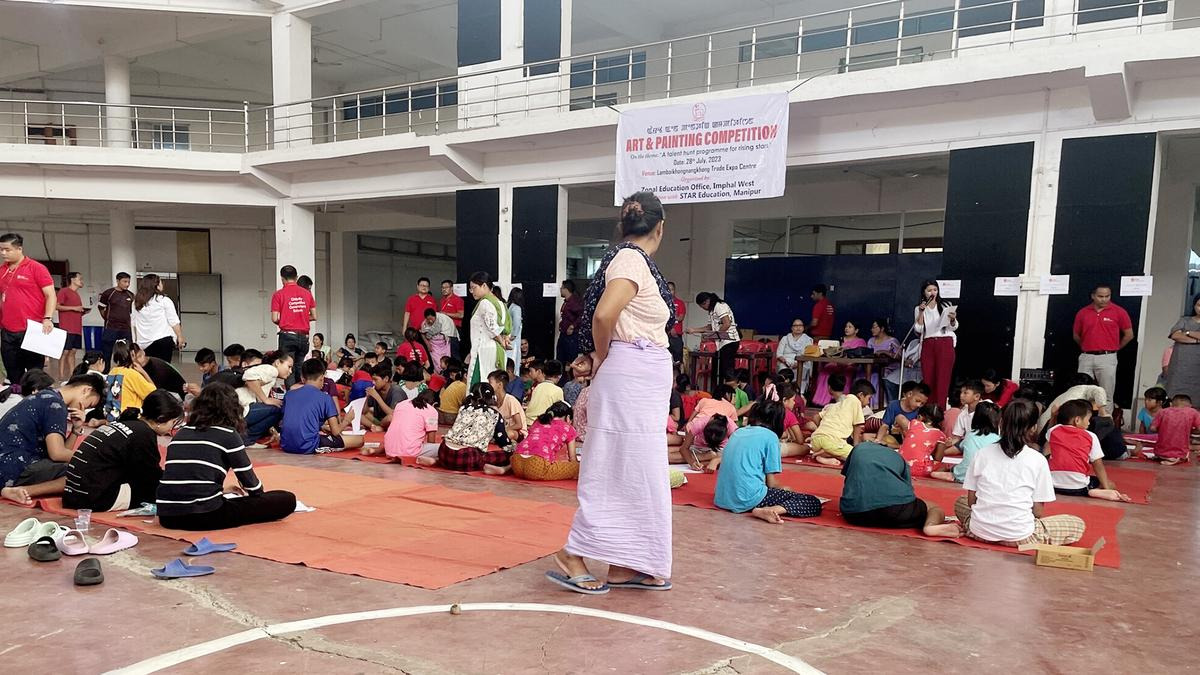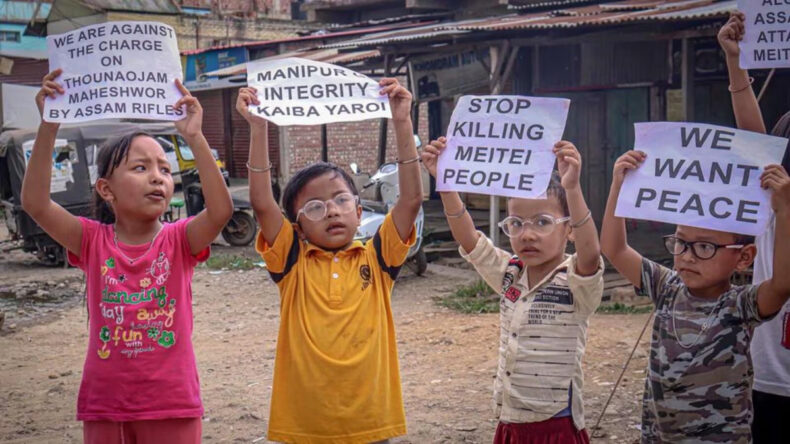The state’s social welfare department has issued disturbing data revealing that approximately 50,000 people have been evacuated from their homes as a result of the continuing ethnic conflicts in Manipur. Approximately 12,694 children have sought refuge in relief camps across violence-stricken Manipur as a result of this humanitarian disaster.

Even more upsetting is the discovery that 100 of these youngsters have experienced significant trauma and are in desperate need of competent counselling. This vital information was disseminated to the public via a government news release, which cited data provided by the state social welfare agency.
In response to this terrible situation, the social welfare department moved quickly to form a dedicated team of trained medical practitioners and child psychiatrists. These professionals have volunteered to provide crucial, professional counselling services to help these profoundly traumatised children cope with their horrific experiences.
The social welfare department’s head, Ng Uttam Singh, emphasised the severity of the matter, saying, “Whenever they find such severely traumatised children, they will be identified and taken to professional counsellors.” This has been done for little more than 100 youngsters. We hope that this number does not rise and that these traumatised children can return to normalcy as soon as possible.” He also emphasised the fact that the consequences of trauma may not be obvious right once, but may appear weeks or even months later.
The Manipur government recognises the significance of the displaced children’s mental health situation and is actively working to address it. Counsellors are being distributed across the state through district children protection offices. Their responsibilities include visiting children’s homes within relief camps to provide counselling services and identify children in need of professional support. Dr. Jina Heigrujam, a child psychiatrist who has worked in various relief camps, emphasised the significance of competent counselling in preventing long-term mental health concerns in these young people.
The social welfare department has used novel ways to identify stress-affected youngsters. Trained field officials use strategies like “play and dance” to detect indicators of stress in children. Following these exercises, the displaced youngsters are given drawing tools, allowing them to express themselves via art.
Another key issue that the social welfare department is addressing is the child-friendliness of the aid camps. These camps, which are frequently set up on an ad hoc basis in response to pressing demands, may lack sufficient preparation for children’s well-being. To address this, a UNICEF team that recently visited the state gave a model for establishing child-friendly aid camps. According to the social welfare director, weekly review sessions at the chief Meetings are being held at the secretary’s level to guarantee that childcare in relief camps remains a high concern.
Furthermore, the department is closely monitoring the health of extremely malnourished children in relief camps. Those who are found to be critically malnourished are immediately referred to the state-run JNIMS hospital in Imphal, where specialised care is available. According to official statistics, 16 youngsters have already undergone treatment for severe malnutrition.
Manipur Chief Secretary Dr. Vineet Joshi and his colleagues have been making regular trips to the relief camps to examine the conditions and well-being of the youngsters. The government continues to be actively involved in meeting the urgent needs of these displaced children.
Manipur’s ethnic strife, which started in the first week of May, has had disastrous implications. Over 150 people have sadly died, and approximately 50,000 more have been displaced from their homes. In the midst of such enormous obstacles, the welfare of children, particularly their mental health, is of crucial importance.
The social welfare department’s dedicated efforts in offering counselling and assistance to traumatised youngsters, in partnership with medical professionals and volunteers, constitute vital milestones towards healing and recovery in the midst of this crisis. The immediate priority remains ensuring the well-being and future prospects of Manipur’s youth as they traverse these difficult and uncertain times.












